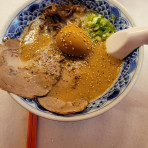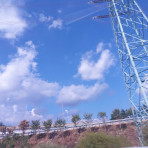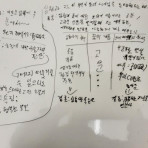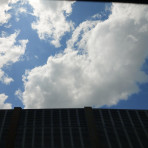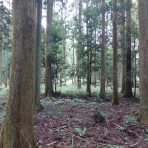Yakuza leader charged over Myanmar nuclear trafficking
본문
Thu, 22 Feb 2024 14:21:00 -0500

A member of a Japanese yakuza criminal syndicate has been charged with trafficking weapons-grade nuclear materials after an arrest in New York that followed an alleged attempt to sell plutonium and uranium to an undercover agent he believed was an Iranian general.
Takeshi Ebisawa, 60, told an undercover agent from the U.S. Drug Enforcement Agency he “had access to a large quantity of nuclear materials that he wanted to sell,” an indictment says, and sent photos of rocks next to a Gieger counter, which measures radioactivity.
Ebisawa said the materials came from an insurgent group in Myanmar and tried to sell them in Thailand, via the undercover agent, to a man he believed was part of Iran’s nuclear program, according to the indictment unsealed by a Manhattan court on Wednesday.
In recorded phone calls, the agent, who was posing as a drug and weapons trafficker, pressed Ebisawa on whether the materials could be used to reach Iran’s long-held goal of building a nuclear weapon.
“How enriched is it? Above 5 percent? They don't need it for energy, Iranian government need it for nuclear weapons,” the agent said.
Ebisawa replied: “I think so and I hope so.”
The indictment does not say where the insurgent group in Myanmar had sourced the nuclear materials. The country is “not believed” to have an active nuclear weapons program, according to the Nuclear Threat Initiative, a non-profit based in Washington, D.C.
DEA administrator Anne Milgram praised the “tireless work” of the agents who carried out the sting “to protect us from such evil.”
“As alleged, the defendants in this case trafficked in drugs, weapons, and nuclear material – going so far as to offer uranium and weapons-grade plutonium fully expecting that Iran would use it for nuclear weapons,” Milgram said in a statement.
“This is an extraordinary example of the depravity of drug traffickers who operate with total disregard for human life,” she said.
Yellowcake
Ebisawa and a co-defendant, Thai national Somphop Singhasiri, 60, were arrested in Manhattan in April 2022 on drug trafficking charges, according to the indictment, which says they “conspired” to import more than 500 grams of methamphetamine and a kilogram of heroin.
However, the nuclear trafficking charges are far more damning, with DEA agents having surreptitiously video recorded in-person meetings they say show that Ebisawa and his associates moved the materials from Myanmar to Thailand, and wanted to sell them to Iran.
Ebisawa had initially pressed the undercover agent with “repeated inquiries” about finding a buyer for uranium, the indictment says. When the agent connected him to an established DEA source posing as the Iranian general, he then expanded his offer even further.
After offering to sell 50 metric tons of uranium and thorium for US$6.8 million for use in a nuclear weapon in a September 2020 phone call, Ebisawa added he could source plutonium that he said would be “better” and more “powerful” for use in a nuclear weapon.
On behalf of the insurgent group, Ebisawa also allegedly sought to buy from the agent a long list of weapons including surface-to-air missiles, sniper rifles, rocket propelled grenade launchers and machine guns.
After a series of discussions over the next year-and-a-half about the possible sale, Ebisawa then met with the DEA agent in a hotel room on the tropical Thai island of Phuket in February 2022 and showed him a “powdery yellow substance” he said was uranium yellowcake.
He later took the nuclear samples to an office in Bangkok, the indictment says, where Thai law enforcement in May 2022 carried out a search, seized the nuclear materials and handed them over to U.S. authorities, who determined that they were in fact weapons-grade.
Matthew Olsen, the U.S. assistant attorney general for national security, said he was pleased the Yakuza leader was working with an undercover agent and not a real international weapons trafficker.
“It is chilling to imagine the consequences had these efforts succeeded, and the Justice Department will hold accountable those who traffic in these materials and threaten U.S. national security and international stability,” Olsen said in a statement.
Edited by Malcolm Foster
A member of a Japanese yakuza criminal syndicate has been charged with trafficking weapons-grade nuclear materials after an arrest in New York that followed an alleged attempt to sell plutonium and uranium to an undercover agent he believed was an Iranian general.
Takeshi Ebisawa, 60, told an undercover agent from the U.S. Drug Enforcement Agency he “had access to a large quantity of nuclear materials that he wanted to sell,” an indictment says, and sent photos of rocks next to a Gieger counter, which measures radioactivity.
Ebisawa said the materials came from an insurgent group in Myanmar and tried to sell them in Thailand, via the undercover agent, to a man he believed was part of Iran’s nuclear program, according to the indictment unsealed by a Manhattan court on Wednesday.
In recorded phone calls, the agent, who was posing as a drug and weapons trafficker, pressed Ebisawa on whether the materials could be used to reach Iran’s long-held goal of building a nuclear weapon.
“How enriched is it? Above 5 percent? They don't need it for energy, Iranian government need it for nuclear weapons,” the agent said.
Ebisawa replied: “I think so and I hope so.”
The indictment does not say where the insurgent group in Myanmar had sourced the nuclear materials. The country is “not believed” to have an active nuclear weapons program, according to the Nuclear Threat Initiative, a non-profit based in Washington, D.C.
DEA administrator Anne Milgram praised the “tireless work” of the agents who carried out the sting “to protect us from such evil.”
“As alleged, the defendants in this case trafficked in drugs, weapons, and nuclear material – going so far as to offer uranium and weapons-grade plutonium fully expecting that Iran would use it for nuclear weapons,” Milgram said in a statement.
“This is an extraordinary example of the depravity of drug traffickers who operate with total disregard for human life,” she said.
Yellowcake
Ebisawa and a co-defendant, Thai national Somphop Singhasiri, 60, were arrested in Manhattan in April 2022 on drug trafficking charges, according to the indictment, which says they “conspired” to import more than 500 grams of methamphetamine and a kilogram of heroin.
However, the nuclear trafficking charges are far more damning, with DEA agents having surreptitiously video recorded in-person meetings they say show that Ebisawa and his associates moved the materials from Myanmar to Thailand, and wanted to sell them to Iran.
Ebisawa had initially pressed the undercover agent with “repeated inquiries” about finding a buyer for uranium, the indictment says. When the agent connected him to an established DEA source posing as the Iranian general, he then expanded his offer even further.
After offering to sell 50 metric tons of uranium and thorium for US$6.8 million for use in a nuclear weapon in a September 2020 phone call, Ebisawa added he could source plutonium that he said would be “better” and more “powerful” for use in a nuclear weapon.
On behalf of the insurgent group, Ebisawa also allegedly sought to buy from the agent a long list of weapons including surface-to-air missiles, sniper rifles, rocket propelled grenade launchers and machine guns.
After a series of discussions over the next year-and-a-half about the possible sale, Ebisawa then met with the DEA agent in a hotel room on the tropical Thai island of Phuket in February 2022 and showed him a “powdery yellow substance” he said was uranium yellowcake.
He later took the nuclear samples to an office in Bangkok, the indictment says, where Thai law enforcement in May 2022 carried out a search, seized the nuclear materials and handed them over to U.S. authorities, who determined that they were in fact weapons-grade.
Matthew Olsen, the U.S. assistant attorney general for national security, said he was pleased the Yakuza leader was working with an undercover agent and not a real international weapons trafficker.
“It is chilling to imagine the consequences had these efforts succeeded, and the Justice Department will hold accountable those who traffic in these materials and threaten U.S. national security and international stability,” Olsen said in a statement.
Edited by Malcolm Foster
자유아시아방송 제공 및 저작권 소유 | RFA provided and copyrighted -www.rfa.org

A member of a Japanese yakuza criminal syndicate has been charged with trafficking weapons-grade nuclear materials after an arrest in New York that followed an alleged attempt to sell plutonium and uranium to an undercover agent he believed was an Iranian general.
Takeshi Ebisawa, 60, told an undercover agent from the U.S. Drug Enforcement Agency he “had access to a large quantity of nuclear materials that he wanted to sell,” an indictment says, and sent photos of rocks next to a Gieger counter, which measures radioactivity.
Ebisawa said the materials came from an insurgent group in Myanmar and tried to sell them in Thailand, via the undercover agent, to a man he believed was part of Iran’s nuclear program, according to the indictment unsealed by a Manhattan court on Wednesday.
In recorded phone calls, the agent, who was posing as a drug and weapons trafficker, pressed Ebisawa on whether the materials could be used to reach Iran’s long-held goal of building a nuclear weapon.
“How enriched is it? Above 5 percent? They don't need it for energy, Iranian government need it for nuclear weapons,” the agent said.
Ebisawa replied: “I think so and I hope so.”
The indictment does not say where the insurgent group in Myanmar had sourced the nuclear materials. The country is “not believed” to have an active nuclear weapons program, according to the Nuclear Threat Initiative, a non-profit based in Washington, D.C.
DEA administrator Anne Milgram praised the “tireless work” of the agents who carried out the sting “to protect us from such evil.”
“As alleged, the defendants in this case trafficked in drugs, weapons, and nuclear material – going so far as to offer uranium and weapons-grade plutonium fully expecting that Iran would use it for nuclear weapons,” Milgram said in a statement.
“This is an extraordinary example of the depravity of drug traffickers who operate with total disregard for human life,” she said.
Yellowcake
Ebisawa and a co-defendant, Thai national Somphop Singhasiri, 60, were arrested in Manhattan in April 2022 on drug trafficking charges, according to the indictment, which says they “conspired” to import more than 500 grams of methamphetamine and a kilogram of heroin.
However, the nuclear trafficking charges are far more damning, with DEA agents having surreptitiously video recorded in-person meetings they say show that Ebisawa and his associates moved the materials from Myanmar to Thailand, and wanted to sell them to Iran.
Ebisawa had initially pressed the undercover agent with “repeated inquiries” about finding a buyer for uranium, the indictment says. When the agent connected him to an established DEA source posing as the Iranian general, he then expanded his offer even further.
After offering to sell 50 metric tons of uranium and thorium for US$6.8 million for use in a nuclear weapon in a September 2020 phone call, Ebisawa added he could source plutonium that he said would be “better” and more “powerful” for use in a nuclear weapon.
On behalf of the insurgent group, Ebisawa also allegedly sought to buy from the agent a long list of weapons including surface-to-air missiles, sniper rifles, rocket propelled grenade launchers and machine guns.
After a series of discussions over the next year-and-a-half about the possible sale, Ebisawa then met with the DEA agent in a hotel room on the tropical Thai island of Phuket in February 2022 and showed him a “powdery yellow substance” he said was uranium yellowcake.
He later took the nuclear samples to an office in Bangkok, the indictment says, where Thai law enforcement in May 2022 carried out a search, seized the nuclear materials and handed them over to U.S. authorities, who determined that they were in fact weapons-grade.
Matthew Olsen, the U.S. assistant attorney general for national security, said he was pleased the Yakuza leader was working with an undercover agent and not a real international weapons trafficker.
“It is chilling to imagine the consequences had these efforts succeeded, and the Justice Department will hold accountable those who traffic in these materials and threaten U.S. national security and international stability,” Olsen said in a statement.
Edited by Malcolm Foster
A member of a Japanese yakuza criminal syndicate has been charged with trafficking weapons-grade nuclear materials after an arrest in New York that followed an alleged attempt to sell plutonium and uranium to an undercover agent he believed was an Iranian general.
Takeshi Ebisawa, 60, told an undercover agent from the U.S. Drug Enforcement Agency he “had access to a large quantity of nuclear materials that he wanted to sell,” an indictment says, and sent photos of rocks next to a Gieger counter, which measures radioactivity.
Ebisawa said the materials came from an insurgent group in Myanmar and tried to sell them in Thailand, via the undercover agent, to a man he believed was part of Iran’s nuclear program, according to the indictment unsealed by a Manhattan court on Wednesday.
In recorded phone calls, the agent, who was posing as a drug and weapons trafficker, pressed Ebisawa on whether the materials could be used to reach Iran’s long-held goal of building a nuclear weapon.
“How enriched is it? Above 5 percent? They don't need it for energy, Iranian government need it for nuclear weapons,” the agent said.
Ebisawa replied: “I think so and I hope so.”
The indictment does not say where the insurgent group in Myanmar had sourced the nuclear materials. The country is “not believed” to have an active nuclear weapons program, according to the Nuclear Threat Initiative, a non-profit based in Washington, D.C.
DEA administrator Anne Milgram praised the “tireless work” of the agents who carried out the sting “to protect us from such evil.”
“As alleged, the defendants in this case trafficked in drugs, weapons, and nuclear material – going so far as to offer uranium and weapons-grade plutonium fully expecting that Iran would use it for nuclear weapons,” Milgram said in a statement.
“This is an extraordinary example of the depravity of drug traffickers who operate with total disregard for human life,” she said.
Yellowcake
Ebisawa and a co-defendant, Thai national Somphop Singhasiri, 60, were arrested in Manhattan in April 2022 on drug trafficking charges, according to the indictment, which says they “conspired” to import more than 500 grams of methamphetamine and a kilogram of heroin.
However, the nuclear trafficking charges are far more damning, with DEA agents having surreptitiously video recorded in-person meetings they say show that Ebisawa and his associates moved the materials from Myanmar to Thailand, and wanted to sell them to Iran.
Ebisawa had initially pressed the undercover agent with “repeated inquiries” about finding a buyer for uranium, the indictment says. When the agent connected him to an established DEA source posing as the Iranian general, he then expanded his offer even further.
After offering to sell 50 metric tons of uranium and thorium for US$6.8 million for use in a nuclear weapon in a September 2020 phone call, Ebisawa added he could source plutonium that he said would be “better” and more “powerful” for use in a nuclear weapon.
On behalf of the insurgent group, Ebisawa also allegedly sought to buy from the agent a long list of weapons including surface-to-air missiles, sniper rifles, rocket propelled grenade launchers and machine guns.
After a series of discussions over the next year-and-a-half about the possible sale, Ebisawa then met with the DEA agent in a hotel room on the tropical Thai island of Phuket in February 2022 and showed him a “powdery yellow substance” he said was uranium yellowcake.
He later took the nuclear samples to an office in Bangkok, the indictment says, where Thai law enforcement in May 2022 carried out a search, seized the nuclear materials and handed them over to U.S. authorities, who determined that they were in fact weapons-grade.
Matthew Olsen, the U.S. assistant attorney general for national security, said he was pleased the Yakuza leader was working with an undercover agent and not a real international weapons trafficker.
“It is chilling to imagine the consequences had these efforts succeeded, and the Justice Department will hold accountable those who traffic in these materials and threaten U.S. national security and international stability,” Olsen said in a statement.
Edited by Malcolm Foster
좋아요1
이 글을 좋아요하셨습니다
관련링크
등록된 댓글이 없습니다.

